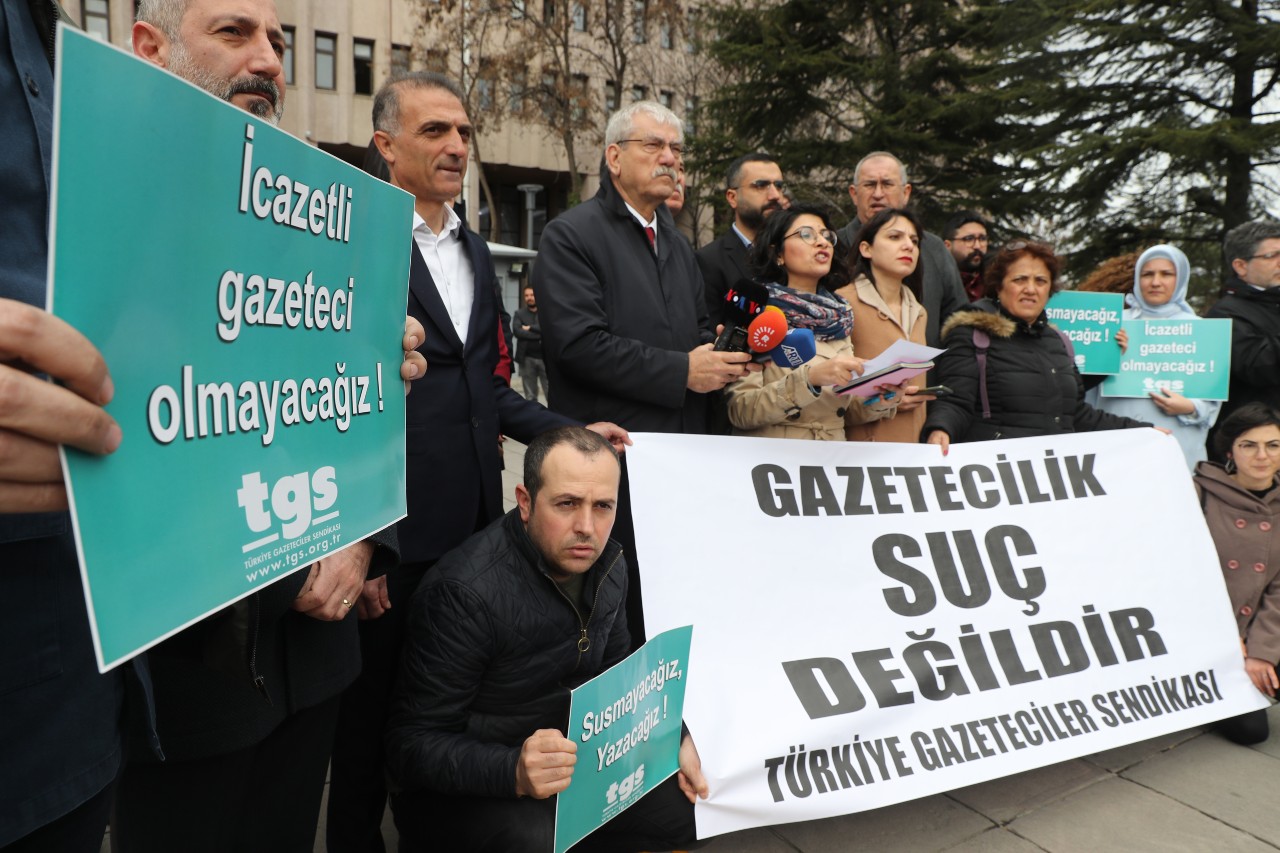One out of every four journalists was subjected to physical violence and half of them received threats in 2020, a report recently released by the Turkish Journalists’ Association (TGC) has shown, revealing the growing pressure on journalists in Turkey.
The Media Monitoring Report on Turkey for 2020 was prepared within the scope of the Media for Democracy/Democracy for Media Project, which was established by the association and funded by the European Union. It aims to strengthen pluralist media and a free press as a safeguard for democracy in the country.
One out of every five journalists faced trial last year, while trial of one out of every six was still ongoing, the report said, emphasizing that there were at least 72 journalists behind bars in Turkey as of the end of 2020.
Hundreds of journalists critical of the ruling Justice and Development Party (AKP) stood trial last year on charges that included “terrorism,” “insulting the president” and “inciting hatred and enmity among the public,” the TGC said.
Referring to the effects of the COVID-19 pandemic that appeared in the country in March 2020, the report stated that newspaper sales decreased by 30 percent and at least 22 journalists in Turkey died of the coronavirus.
The TGC report further emphasized that a large number journalists were among Turkey’s political prisoners who were kept behind bars despite a law adopted by the Justice and Development Party (AKP) government in April to release thousands of inmates to ease overcrowding in jails and protect detainees from the coronavirus.
Turkey’s political prisoners include tens of thousands who have been imprisoned on terror-related charges as part of a crackdown launched by Turkish President Recep Tayyip Erdoğan in the aftermath of an attempted coup in 2016, although they didn’t engage in any criminal activity but were only critical of the government.
According to the report, Turkey’s Presidential Communications Directorate canceled the press-cards of 894 journalists in 2020.
“Although the decision was quickly revoked, with the directorate saying that the cards in question were not canceled but only ‘under evaluation,’ press organizations stated that as of the end of 2020 more than 620 journalists have yet to receive their press cards,” the report said.
Official advertising bans, administrative fines and broadcast bans issued by Turkey’s Press Advertising Authority (BİK) and the Radio and Television Supreme Council (RTÜK) had a significant economic impact on opposition news outlets in 2020, the report said, noting that the Evrensel and Birgün dailies along with television channels Tele 1, Halk TV and Fox TV were fined millions of lira.
“Censorship is an ever-present problem, and could be observed in many different forms throughout 2020,” the report said, referring to private Turkish television station Olay TV, which was closed down only 26 days after it started broadcasting, in a one-of-a-kind incident.
Founded by Turkish businessmen Cavit Çağlar, the TV channel, which went on air on Nov. 30, closed its doors on Dec. 25 due to pressure from the AKP government, Turkish media reports said.
One of the leading jailers of journalists in the world, Turkey was ranked 154th out of 180 countries in the 2020 World Press Freedom Index published by Reporters Without Borders (RSF).
